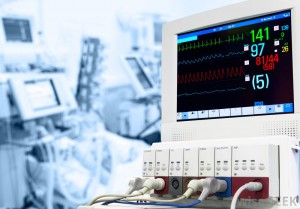 Both the change in HRQOL during ICU admission and its immediate recovery following ICU discharge have never been studied. This long-term prospective study evaluated the impact of critical illness on the perceived HRQOL in patients admitted to the ICU for > 48 h and surviving up to 6 months following ICU discharge. Before ICU admission, HRQOL was already impaired when compared to the healthy population. This was even more pronounced in the nonsurvivors. Critical illness caused a significant drop in all HRQOL dimensions (except for BP) and the component scores. Interestingly, the recovery of HRQOL during the general ward stay was the most significant improvement in HRQOL for the whole follow-up period of 6 months. At the end of the follow-up, the RE and MH dimensions had returned to pre-ICU admission values. However, PF, RP, GH, and SF dimensions remained lower than the pre-ICU admission values and the values for the healthy population.
Both the change in HRQOL during ICU admission and its immediate recovery following ICU discharge have never been studied. This long-term prospective study evaluated the impact of critical illness on the perceived HRQOL in patients admitted to the ICU for > 48 h and surviving up to 6 months following ICU discharge. Before ICU admission, HRQOL was already impaired when compared to the healthy population. This was even more pronounced in the nonsurvivors. Critical illness caused a significant drop in all HRQOL dimensions (except for BP) and the component scores. Interestingly, the recovery of HRQOL during the general ward stay was the most significant improvement in HRQOL for the whole follow-up period of 6 months. At the end of the follow-up, the RE and MH dimensions had returned to pre-ICU admission values. However, PF, RP, GH, and SF dimensions remained lower than the pre-ICU admission values and the values for the healthy population.
In this study, we used the SF-36 questionnaire to assess the quality of life. Other questionnaires, like the EuroQol-5D, have been used in the ICU and would have required significantly less time to com-plete. However, the EuroQol-5D has not been clearly validated for ICU patients. In addition, the SF-36 covers much more domains and is more precise, although imbalances between the different domains in the SF-36 are present. We and others have validated the use of proxies and found good agreement between proxy and patient. Although others have reported poor correlation when using substitute decision makers, a retrospective assessment at 3 months following ICU discharge of the pre-ICU admission HRQOL by the patient was used, and it was unclear whether the substitute decision makers were in close contact with the patient on a regular basis. In addition, we found that proxies, although in close contact, scored the HRQOL in patients with advanced age (ie, > 80 years of age) lower than in patients of younger age (ie, < 80 years of age).

 Of the 2,127 patients screened, 1,676 patients were excluded (Fig 1). Of these excluded patients, 179 died while in the ICU (10.7%) and 87 died while on the general ward (5.2%). In the 451 patients included in the study, HRQOL was measured on ICU admission, and in 252 patients at the 6-month follow-up. At that time, 159 patients had died and 40 patients (9%) were lost to follow-up (Fig 1). The demographic and clinical characteristics of the patients lost to follow-up did not differ from the group analyzed in the study (data not shown). Demographic and clinical characteristics are shown in Table 1. About half of the patients were admitted to the ICU due to acute non-surgery-related illness. The majority of the surgical patients were admitted to the ICU following acute surgery.
Of the 2,127 patients screened, 1,676 patients were excluded (Fig 1). Of these excluded patients, 179 died while in the ICU (10.7%) and 87 died while on the general ward (5.2%). In the 451 patients included in the study, HRQOL was measured on ICU admission, and in 252 patients at the 6-month follow-up. At that time, 159 patients had died and 40 patients (9%) were lost to follow-up (Fig 1). The demographic and clinical characteristics of the patients lost to follow-up did not differ from the group analyzed in the study (data not shown). Demographic and clinical characteristics are shown in Table 1. About half of the patients were admitted to the ICU due to acute non-surgery-related illness. The majority of the surgical patients were admitted to the ICU following acute surgery. All patients admitted for > 48 h to a 10-bed closed-format mixed surgical-medical ICU of a 654-bed university-affiliated hospital in the Netherlands were eligible for the study. Between September 2000 and April 2004, all 2,127 patients admitted to the ICU were screened for study participation (Fig 1). In patients readmitted to the ICU (n = 36), data on HRQOL at discharge from the final ICU admission were included in the study. All patients surviving the 6-month follow-up period were included in the study (ie, long-term survivors). Nonsurvivors were defined as all patients who died between ICU admission and the 6-month follow-up.
All patients admitted for > 48 h to a 10-bed closed-format mixed surgical-medical ICU of a 654-bed university-affiliated hospital in the Netherlands were eligible for the study. Between September 2000 and April 2004, all 2,127 patients admitted to the ICU were screened for study participation (Fig 1). In patients readmitted to the ICU (n = 36), data on HRQOL at discharge from the final ICU admission were included in the study. All patients surviving the 6-month follow-up period were included in the study (ie, long-term survivors). Nonsurvivors were defined as all patients who died between ICU admission and the 6-month follow-up. Health-related quality of life (HRQOL) has been recognized as a relevant outcome measure for patients requiring ICU care. Predicting long-term outcomes using physical and psychological factors, functional status, and social interactions is becoming more important both for doctors and nurses as well as for patients and their relatives. Various instruments have been described, but there is no uniform test for HRQOL in general, and not for ICU patients in particular. However, in a consensus conference, the Medical Outcomes Study 36-item short form (SF-36) and EuroQol-5D were recommended as the most appropriate instruments in this setting. The EuroQol-5D is a generic instrument that includes five dimensions and the EuroQol-5D visual analog scale. The SF-36 contains eight multiitem dimensions and is currently one of the most widely used generic questionnaires used in critical
Health-related quality of life (HRQOL) has been recognized as a relevant outcome measure for patients requiring ICU care. Predicting long-term outcomes using physical and psychological factors, functional status, and social interactions is becoming more important both for doctors and nurses as well as for patients and their relatives. Various instruments have been described, but there is no uniform test for HRQOL in general, and not for ICU patients in particular. However, in a consensus conference, the Medical Outcomes Study 36-item short form (SF-36) and EuroQol-5D were recommended as the most appropriate instruments in this setting. The EuroQol-5D is a generic instrument that includes five dimensions and the EuroQol-5D visual analog scale. The SF-36 contains eight multiitem dimensions and is currently one of the most widely used generic questionnaires used in critical 

